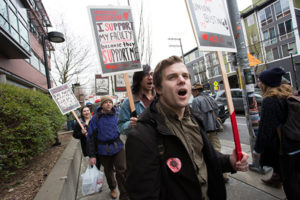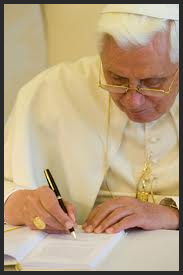Political scientist Sheldon Wolin (1922-2015), who died in October, fought against a dominant approach in social science that constructs abstract models to then be used in devising and evaluating public policy. Instead, Wolin turned to the history of specific societies. From them, he derived lessons that apply to modern situations.
In a well-known essay, Wolin looks at the saga of twins Esau and Jacob, as revealed in Genesis (See 25:19-34; 27:1-49). He then explores the difference between an individual who lacks context and a relational person who is rooted in family and community traditions. The older twin Esau, you remember, sells his birthright to Jacob. Their father Isaac is then tricked into bestowing the ancestral blessing on Jacob the younger brother.
A birthright, Wolin explains, is a unique and irreplaceable inherited collective identity. A birthright is an honor, but it implies commitment. It denies that solitary individuals are thrown into the world and allowed to make unencumbered choices. Instead, the birthright (which is one’s package of family and community traditions) bestows on its recipient all the treasures of the ancestors but includes the obligations as well. Yet Esau and now many people in the United States, Wolin feels, would say the disappearance of familial obligation, especially obligation to the elderly, is not “a loss but a relief.”
Wolin calls this wholesale embrace of unencumbered individualism the contract theory of society. It replaces thick stories of familial honor and obligation with an assessment about the near-term additions or subtractions to an individual’s interest. Little regard, explains Wolin, is given to the meaningof the inherited situation. Nor do individuals consider “the possibility that [because of this or that choice] I could be better off but that we [will] not.” The contract theory rests on shaky premises, he writes.
The part of the Esau and Jacob story that many of us miss is that Jacob’s little coup d’état was a disaster for both him and his brother. They feared and fought one another most of their lifetime. Only at the conclusion of Genesis does Jacob imperfectly attempt to end a pattern of isolation, resentment, retaliation and more isolation.
In popular contract theory, individuals are autonomous and society starts afresh each morning. But in reality, Wolin continues, there is never a single moment when all individuals “have no prior history” related to economic class, religion, ethnicity, race, gender, sexual orientation, geography, and more. The contract theory “is deeply anti-historical.” It posits “a memory-less person without a birthright.” The contract theory is really “collective amnesia.”
Our goal as North Americans is not to be enslaved by the past. The democratic idea that we are allowed to rise above the education and economic level of family or class is an advance in God’s plan. But the price for our ragged individualism is high. Far too many have become unattached from a collective story. A large number of isolated and resource-impoverished seniors is but one example of our lost sense of ancestral gratitude. A contract society, as it turns out, is not dynamic. Today’s society is populated by free-roaming individuals making so-called free choices, yet ours is a static society— economically and especially spiritually. Individuals presume they are choosing, but they are not participating. Without the power of collective memory, says Wolin, true participation, which is “originating or initiating cooperative action with others,” becomes a rarity, not the norm.
The challenge is to draw upon the best values of our parents, grandparents, and other heroes in the faith as we create and fashion what Genesis calls Eden:literally, “a home out of the earth.”
Droel is the author of Monday Eucharist (National Center for the Laity, PO Box 291102, Chicago, IL 60629; $8)




